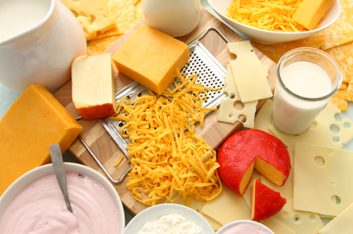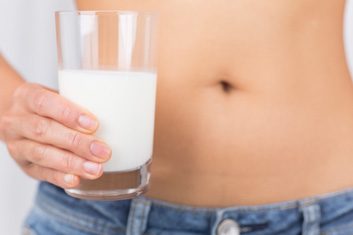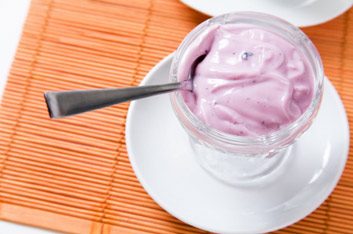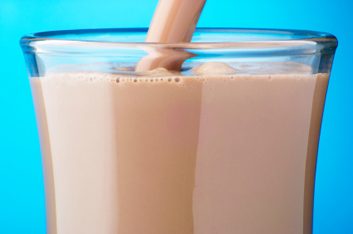
Enjoy dairy
The effects brought on by lactose intolerance – gas, cramps, nausea and diarrhea – can be utterly unpleasant. So no one would blame you for wanting to avoid the foods that set off your symptoms.
But does lactose intolerance mean you can never enjoy dairy foods? “Absolutely not,” says Dayna Weiten, a registered dietitian in Winnipeg. “There are a number of strategies that people can use to include products in their diet that may have lactose.”
Milk contains important vitamins and minerals, and may even help ward off disease. So it’s worth exploring these eight ways to keep milk on your menu.

1. Start smaller
If a smoothie caused you to cramp up, try half a smoothie the next time. A smaller portion of a dairy product is less likely to give you symptoms. “I always encourage people to start with low amounts and check out their tolerance,” says Weiten. “If they’re symptom-free, then they can try to increase the amount gradually.”

2. Space it out
Instead of taking in your entire day’s dairy at once, try splitting it up. Evidence suggests that most people diagnosed with lactose intolerance won’t have any discomfort if they drink a cup of milk in the morning and another in the evening.

3. Have it at mealtime
Consume your dairy products at mealtime instead of as a snack. When you’re having it with other food, it’s digested more slowly. That means by the time the lactose travels to your large intestine, there’s less of it left. “Having a milkshake or ice cream by itself is more likely to create symptoms,” Weiten says.

4. Drink lactose-free milk
Lactose-free milk has had the lactose removed during the production process. None of the vitamins and minerals in the milk are affected in the process. Since there’s nothing left for your system to react to, you won’t risk having symptoms when you gulp down a glass of the good stuff.

5. Take enzyme tablets, or add drops to your dairy
Lactose intolerance is an enzyme deficiency. The uncomfortable bloating and cramping happen because your body can’t produce enough lactase to keep up with the dairy in your diet. But you can top up the enzyme in your digestive system by taking lactase tablets just before you take in dairy. You can also add lactase drops to a container of milk or cream. Just be sure to wait 24 hours before you consume it.

6. Eat cheese
Hard cheeses, like cheddar and Swiss, are naturally low in lactose. So you may be able to enjoy them without suffering symptoms. Processed cheese tends to have a higher lactose level, but it’s still less than regular milk, says Weiten. “A cup of milk has 11 or 12 grams of lactose. Processed cheese slices are in the range of 3 to 4 grams.”

7. Try yogurt and probiotics
Yogurt contains friendly bacteria that produce enzymes and help break down milk sugar. So when you snack on yogurt, some of the digestion work is already done for you. And it means there’s a lesser chance you’ll be bothered by lactose. You can also take probiotics in capsule form to help you digest dairy. Researchers are currently studying the benefits of probiotics for people with lactose intolerance.

8. Choose chocolate milk
Sometimes, people who have trouble with regular milk find they have fewer symptoms when they drink chocolate milk. Experts aren’t quite sure why it’s often better tolerated, but then again, when does chocolate require an explanation?

Find what works for you
Everyone’s tolerance levels are individual, and you may find more success with some of these strategies than others. But it’s worth giving them a chance if it means you can include dairy in your diet. And, as Weiten notes, “The nice thing is, you’re not you’re not putting yourself at risk of any life-threatening problem by trying out a food. People can test their own boundaries.”
Related:
• The health benefits of milk
• 7 myths about lactose intolerance
• What causes lactose intolerance?
